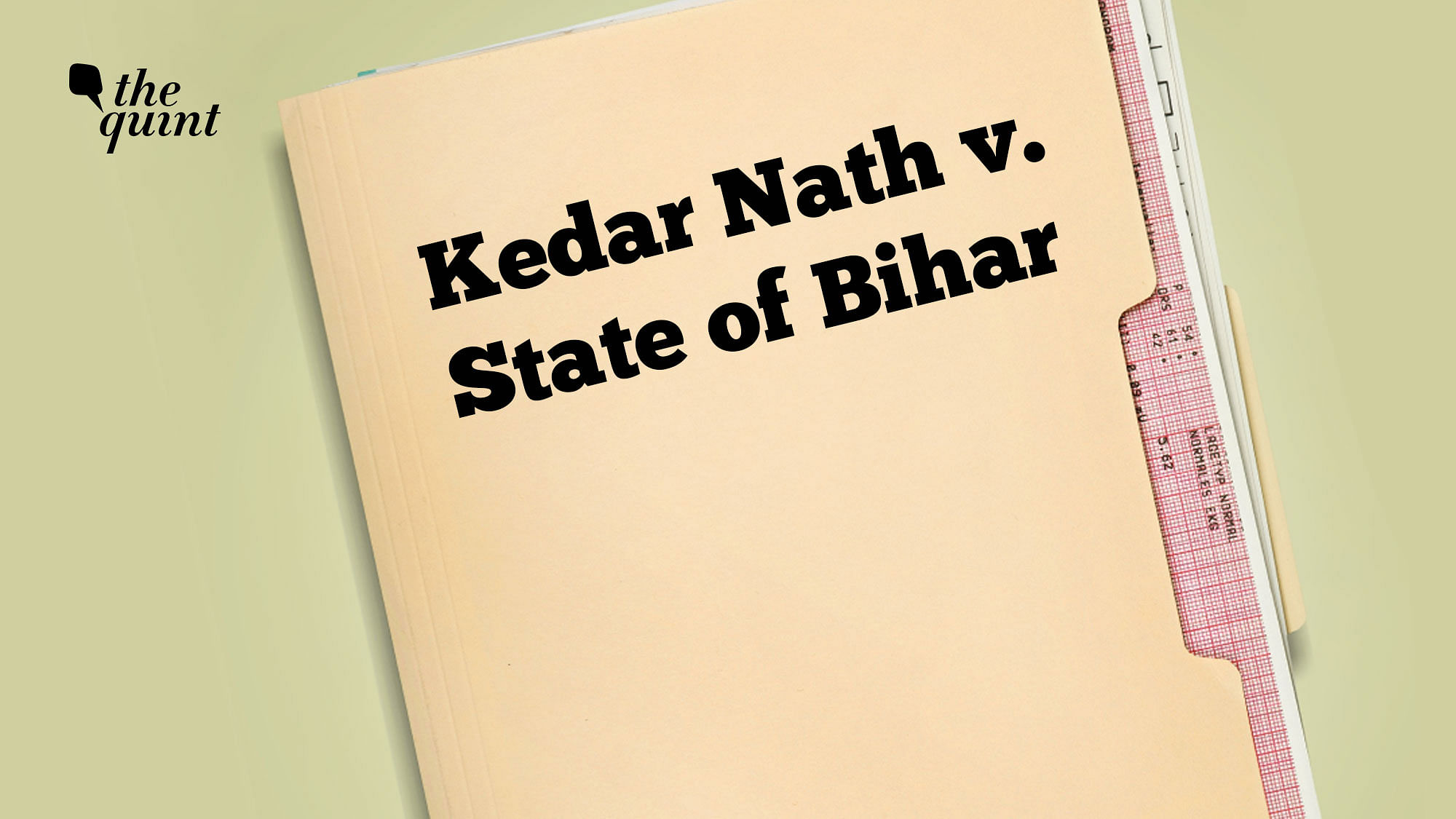
What Was the Kedar Nath Case? How Did it Redefine Sedition?
Kedar Nath had called Congress Party “goondas” and accused them of “sucking the blood of mazdoor and kisan”.

advertisement
On 3 June, the Supreme Court quashed the sedition case filed against veteran journalist Vinod Dua, filed by a BJP leader from Himachal Pradesh. The complainant was aggrieved by Dua’s YouTube show in which he had criticised the central government‘s implementation of the COVID-19 lockdown.
To understand what this “high threshold” is, we decided to revisit the Kedar Nath case. Who was Kedar Nath? Why was he prosecuted and convicted of sedition? Have successive governments learnt any lesson from the “high standard” for invoking sedition set in that case?
Who Was Kedar Nath?
Kedar Nath, popularly known as KN Singh among his colleagues, was a member of the Forward Bloc of the Communist Party. He hailed from Bihar’s Barauni Flag village in the Begusarai district.
Talking to The Indian Express, Makardhwaj Singh, Kedar Nath’s long associate said that he always remembered Nath for “his razor-sharp tongue that didn’t spare his rivals.”
Kedar Nath Case: The Facts
In the Kedar Nath case, the Constitution Bench of the Supreme Court was hearing a question that arose in criminal appeals filed by several persons including Kedar Nath: is Section 124A of IPC which lays down the offence of sedition violative of the fundamental right to free speech enshrined in Article 19(1)(a) of the Constitution.
Kedar Nath, who associated himself with the Forward Communist Party, was convicted of sedition for a speech he had made in 1953 at Barauni village in Bihar. In his speech he had said:
Kedar Nath had further accused the Congress party of “sucking the blood of kisan and mazdoor” by imposing taxes and by “banking upon American dollars”.
Kedar Nath was convicted of offences under section 124A and 505(b) of the Indian Penal Code. He subsequently moved an appeal before the Patna High Court which was rejected. Therefore, he finally approached the Supreme Court filing a criminal appeal. In that criminal appeal, he had also challenged the constitutional validity of Section 124A of IPC.
What Did The Supreme Court Say?
The Supreme Court very categorically clarified that Section 124A penalises only that speech that is either intended or has the tendency to create public disorder or incitement to violence.
In light of the Supreme Court’s upholding the constitutional validation of sedition, the appeal filed by Kedar Nath was dismissed. He had to remain in jail to serve the rest of his sentence. However, he later went on to join the Congress, the very party he had so vehemently criticised in 1953.
He died in 1996 in his village Barauni.
(At The Quint, we are answerable only to our audience. Play an active role in shaping our journalism by becoming a member. Because the truth is worth it.)
- Access to all paywalled content on site
- Ad-free experience across The Quint
- Early previews of our Special Projects
Published: undefined